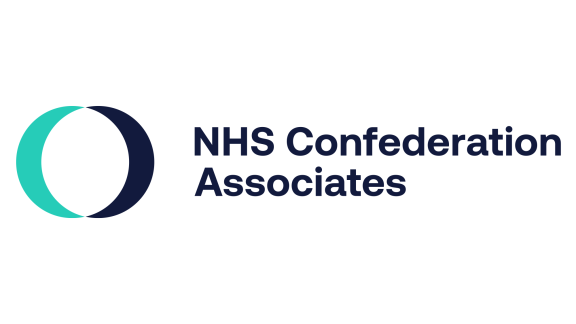People face being kept in hospital longer than needed if vital government funding is taken away

In a letter to the Secretary of State for Health and Social Care and Chancellor, the NHS Confederation, NHS Providers and other national organisations call for additional funding for discharge to assess to be confirmed this month, or people who are ready to be discharged from hospital risk having to stay longer than needed, causing treatment delays for other patients.
People who are ready to be discharged from hospital risk end up staying longer than needed - with risks to their wellbeing and triggering treatment delays for other patients - if vital additional funding is not confirmed this month.
Since April, people in hospital have benefited from an extra £600 million of funding that has enabled more investment in community services, which has led to more people being treated in or close to their homes.
The new approach - discharge to assess - guarantees four weeks of care support for each discharged person, funded centrally. People can leave hospital as soon as they are medically ready, freeing up vital capacity. Alongside the NHS, social care and their families, patients then have a full four weeks to finalise longer-term care arrangements.
However, with the funding coming to an end in October, the NHS Confederation, NHS Providers and a range of national organisations have written to the Secretary of State for Health and Social Care and the Chancellor, urging them to avoid a ‘cliff edge’ in care as these services will need to be stood down unless a decision is made to extend the funding.
The approach has already helped to ‘free up’ 30,000 hospital beds, and 6,000 staff including 4,000 frontline nurses. It has cut down the proportion of people staying in hospital for more than three weeks by almost a third.
It has provided vital, stable funding to fragile social care providers and supported more people to live well at home and, with better use of short-term recovery services, it has meant reduced need for formal care and support packages.
For people in hospital, it has cut recuperation time and avoided the increased likelihood of physical and mental deterioration and lost independence associated with longer hospital stays. It has helped reduce the risk of hospital-acquired infections including COVID-19.
With the NHS still awaiting its budget for the second half of the year, extra beds in rehabilitation centres and additional staff for home visits risk being scaled back or cut entirely if the discharge to assess funding isn’t matched for the next six months from October. This will result in more people who are medically fit for discharge staying in hospital for longer than needed.
Matthew Taylor, chief executive of the NHS Confederation, said: “This funding has been instrumental in moving patients out of hospital as quickly and safely as possible so that they can be cared for in or closer to their homes, and also so that more patients can benefit from beds that would otherwise be occupied.
“The interaction of health and care systems is complex and can be controversial, but this is an approach that has been proven to work. With the NHS facing a mammoth backlog of care and with the government committed to unveiling a comprehensive social reform package in the autumn, this is surely not the time to be cancelling an initiative at the boundary of health and care that has worked so well.”
Chris Hopson, chief executive of NHS Providers, said: “Everyone knows that discharge to assess funding has been vital in enabling more medically fit patients to be discharged quickly and safely from hospital into their own homes or more suitable community services. Failure to continue this will result in a cliff edge that is likely to lead to an increase in average length of stay in hospital, delayed discharges and avoidable readmissions – all of which are costly to the public purse and to individuals and their families. This is a decision the Chancellor has to make, or we risk leaving more patients stuck in hospital when they don’t need to be.”
Alongside the NHS Confederation and NHS Providers, the letter has been signed by Healthwatch England, the British Red Cross, the Local Government Association, and Age UK. The organisations are calling for the £600 million to be matched for the second half of the year, arguing that pulling the plug on the funding will have a knock-on effect on the NHS waiting list for elective care, with 5.3 million people already known to be waiting for treatment.
The letter warns that removing the funding will risk derailing the progress that has been made so far this year in reducing patient length of stay. According to NHS England data there was a 28 per cent reduction in people staying more than 21 days in hospital between winter 2019/20 and winter 2020/21. The risk is that removing this funding will lead to higher levels of bed occupancy in hospitals, reducing their capacity for elective procedures, all of which would hamper efforts to reduce the waiting list backlog as well as having wide-reaching impacts on the broader health and care system.
The organisations are urging the Secretary of State and the Chancellor to confirm the discharge to assess funding in the coming days so that health and care leaders in England have the time they need to plan their services and ensure contracts are in place in good time.
The funding has been vital in places like Sussex, where they have been able to reduce the average length of stay for patients by 37 per cent.
Siobhan Melia, chief executive of Sussex Community NHS Foundation Trust, said: “We have known for years that the very best place for the majority of patients to recover is in their own homes with the appropriate package of support and care. Any delay to their discharge from hospital to their home, or a community setting, can have a significant impact on their recovery.
“While COVID-19 challenged all parts of the NHS one of the positive consequences of the pandemic was the way in which it brought people and organisations together in adversity in a way we’d never really experienced before with the sole aim of doing what was right by our patients and staff in such extraordinary circumstances.
“There’s no doubt in my mind that withdrawing funding for the discharge to assess model will have a detrimental impact on patients, will result in longer waits in hospital, and will make it harder for dedicated NHS and social care staff to deliver the high standards of care patients need and deserve.
“Instead of abolishing funding for discharge to assess our focus should be on looking at how we can build further on the benefits it brings for our patients, staff and the wider NHS and social care system as a whole at a time when all services are under such significant and sustained pressure and rightly focused on recovery.”
About us
We are the membership organisation that brings together, supports and speaks for the whole healthcare system in England, Wales and Northern Ireland. The members we represent employ 1.5 million staff, care for more than 1 million patients a day and control £150 billion of public expenditure. We promote collaboration and partnership working as the key to improving population health, delivering high-quality care and reducing health inequalities.



